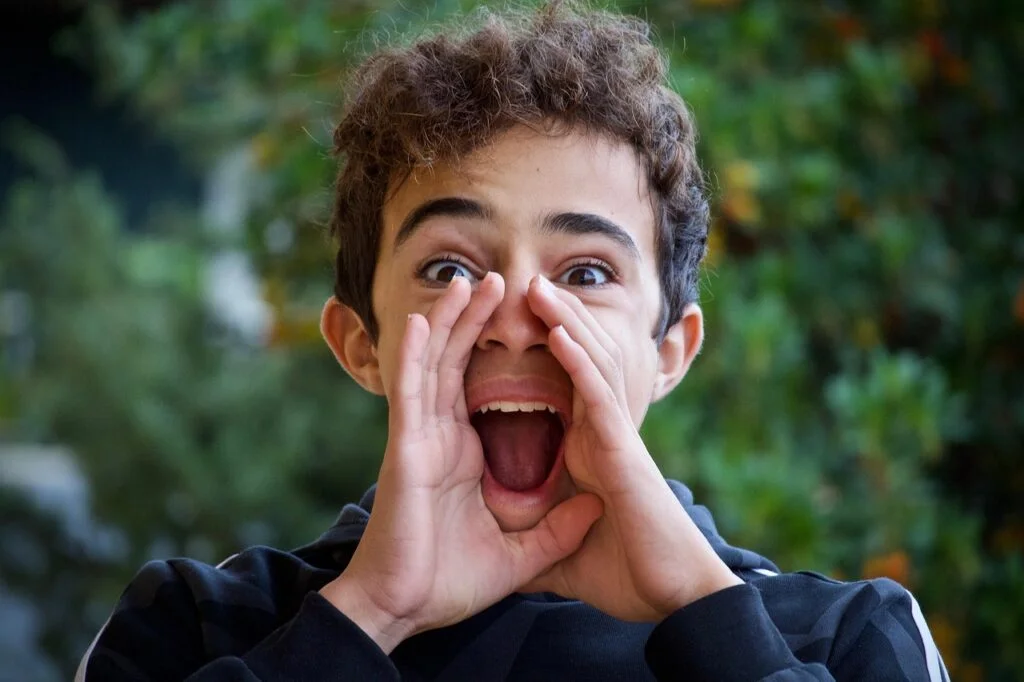
You know that moment when your kid is telling you something and you’re nodding while scrolling through emails? Yeah, they notice. A recent study found that 78% of children can tell when parents are “fake listening” versus truly present.
Quality time isn’t about grand gestures. It’s about those small moments when you’re fully there – phone down, eyes up, actually listening to that rambling story about Minecraft or playground politics.
Mindful parenting and being present with your child creates something powerful that no expensive toy or planned activity ever will. It builds trust. It says “you matter” without saying a word.
But here’s the tricky part – in a world designed to fracture your attention, how do you actually show up fully when your mind is pulling you in twelve different directions?
The Power of Presence in Parenting

How being present differs from being physically available
You can be in the same room as your child and still be a million miles away. That’s the difference between just being physically there and truly being present.
Many parents think showing up is enough. They’re in the house, maybe even in the same room, but their minds are somewhere else – scrolling through social media, replying to work emails, or lost in their own thoughts about dinner plans.
True presence means your mind is where your body is. It’s making eye contact when your child speaks. It’s putting the phone down and actually watching them build that LEGO tower. It’s listening without formulating your response before they’ve finished talking.
The psychological impact of undivided attention
When you give your child undivided attention, you’re telling them something powerful without saying a word: “You matter. What you think matters. What you feel matters.”
Kids who receive this kind of attention develop stronger self-worth. They learn they deserve to be listened to. Research shows these children typically develop better emotional regulation skills and higher confidence levels.
And it’s not just about the big moments. It’s the everyday interactions – the five minutes of genuine connection over breakfast, the bedtime conversation without distractions – that build their sense of security.
Breaking the cycle of distracted parenting
We’re raising the first generation of kids who have to compete with devices for their parents’ attention from birth. That’s not a small thing.
Breaking the cycle starts with awareness. Notice how often you check your phone during family time. Set boundaries – maybe no phones during meals or after 7 PM. Create tech-free zones in your home.
The hard truth? Your kids are watching how you manage your attention. If you’re constantly distracted by notifications, you’re teaching them that’s normal.
Try this: For one day, count how many times you reach for your phone when you’re with your child. The number might surprise you.
Presence as a foundation for secure attachment
Secure attachment doesn’t require perfect parenting. It requires consistent presence.
When you’re consistently available – emotionally and mentally, not just physically – your child learns the world is a safe place to explore because you’re their secure base.
This secure attachment becomes the template for all their future relationships. Children who feel securely attached typically form healthier relationships, handle stress better, and show more resilience when facing life’s challenges.
The magic lies in what psychologists call “attunement” – those moments when you’re fully tuned in to your child’s emotional state. It’s noticing the slight downturn of their mouth when they’re trying not to cry, or the sparkle in their eyes when they’re excited but trying to play it cool.
Digital Distractions: The Modern Parenting Challenge

A. Screen time competition between parents and children
Ever caught yourself scrolling through Instagram while your child is desperately trying to show you their latest LEGO creation? You’re not alone.
The screen time battle isn’t just about limiting your kids’ tablet time anymore. It’s about us too.
Studies show the average parent spends over 9 hours daily with digital media, yet many of those same parents worry about their children’s screen habits. Talk about mixed messages!
Our phones have become like phantom limbs – always within reach, constantly demanding attention. And our kids notice. They’re competing with these devices for our attention, and often losing.
When 4-year-old Emma told her mom, “I wish I was your phone so you’d look at me more,” it wasn’t just cute – it was heartbreaking.
B. Setting healthy technology boundaries for the whole family
The solution isn’t banning technology (good luck with that). It’s about creating family tech guidelines that everyone follows – including you.
Try these practical approaches:
- Create device-free zones (dinner table, bedrooms)
- Establish tech-free time blocks (first hour after school, family game nights)
- Model what you preach (kids follow what we do, not what we say)
- Use tech intentionally (is this scroll actually necessary right now?)
One dad I know put it perfectly: “I realized I was constantly telling my kids to get off their tablets while simultaneously checking my email during family movie night. Something had to change.”
C. Recognizing when devices are disrupting connection
The warning signs are there if we’re honest enough to see them:
- Your child stops mid-sentence because you’re looking at your phone
- You’ve started saying “just a minute” so often it’s become meaningless
- Family time feels interrupted by notifications
- Your child has started mimicking your phone-checking behavior
The most powerful moment comes when you realize your relationship is suffering. That text message can wait. That email isn’t urgent. That social media update isn’t worth missing the look on your child’s face when they master riding a bike.
Digital distraction isn’t just about wasted time – it’s about missed connection opportunities that you’ll never get back.
Quality Time vs. Quantity Time: Finding the Right Balance

Why Brief, Focused Interactions Matter More Than Hours of Distracted Time
Ever noticed how your child lights up when you put down your phone and actually listen? That’s because kids don’t measure love in hours—they measure it in attention.
Five minutes of full engagement beats an hour of half-listening while scrolling through emails. When you’re truly present, your child feels it. They sense they matter. Their brain literally lights up with connection chemicals.
Here’s the harsh truth: most parents spend way more time physically near their kids than emotionally available to them. Your child would rather have 15 minutes of you—really you—than a whole afternoon with your body in the room but your mind elsewhere.
Creating Meaningful Rituals That Foster Connection
Rituals aren’t just nice-to-haves—they’re relationship builders. The bedtime story that never gets skipped. The Saturday morning pancakes. The secret handshake before school.
These predictable moments of connection become anchors for your child. They create a sense of security and belonging that random, occasional attention simply can’t match.
Try this: Pick one daily activity to transform into a special ritual. Maybe it’s the morning drive to school or evening bath time. The activity matters less than your consistency and focus.
The Power of Daily Micro-Moments of Presence
Parenting isn’t always about grand gestures. It’s the tiny moments that add up:
- The 20-second hug when you get home
- Making eye contact when they tell you about their day
- Putting your hand on their shoulder as you pass by
These micro-moments might seem insignificant, but they’re actually relationship gold. They signal to your child: “I see you. You matter to me.”
How Being Fully Present Transforms Ordinary Activities Into Bonding Experiences
Washing dishes together can become a memory your child cherishes forever—if you’re truly there. The magic isn’t in what you’re doing; it’s in how you’re doing it.
When you’re fully present during everyday activities, you:
- Create space for meaningful conversations
- Notice subtle cues about how your child is feeling
- Share laughter and inside jokes
- Model what focus and attention look like
That ordinary car ride becomes extraordinary when you turn off the radio and ask open-ended questions. That routine dinner becomes special when phones are banned and everyone shares their highs and lows.
Strategies for Making the Most of Limited Time Together
Busy schedules are reality for most families. The trick is quality over quantity:
- Schedule presence – Block 15-minute windows in your calendar specifically for connection
- Create tech-free zones – Designate certain spaces or times when devices are off-limits
- Lower the bar – Connection doesn’t require elaborate activities—shooting hoops or folding laundry together counts
- Share the mundane – Involve kids in everyday tasks rather than waiting for “quality time”
- Listen more than you speak – Sometimes your child just needs you to hear them, not solve everything
Remember—your children will forget what you bought them, but they’ll never forget how you made them feel when you were truly there.
Building Emotional Intelligence Through Presence

How your attentiveness teaches children to value their own emotions
When you truly tune in to your child’s emotions, you’re sending a powerful message: their feelings matter. Kids are like emotional sponges. They watch how you respond when they’re upset, frustrated, or bursting with joy.
Ever notice how your child lights up when you put down your phone and really listen? That’s not just happiness—it’s validation. Your undivided attention tells them, “What you feel is important.”
Children who grow up with emotionally present parents learn to recognize and respect their own emotional landscape. They don’t dismiss their sadness as “silly” or hide their anger because it’s “bad.” Instead, they develop a healthy relationship with the full spectrum of human emotions.
I’ve seen this firsthand with my daughter. When I started responding to her tantrums with presence instead of frustration, something magical happened. She became better at naming her feelings and finding solutions. Not overnight, but gradually, meaningfully.
Modeling mindfulness for developing children
Kids don’t learn mindfulness from books—they learn it by watching you.
When you take deep breaths during stressful moments instead of exploding, they notice. When you pause before responding to something upsetting, they’re taking mental notes. Your presence in the moment becomes their blueprint for handling life’s challenges.
Mindfulness isn’t about perfect meditation sessions with your children (though those can be wonderful). It’s about showing them how to navigate real life with awareness:
- Commenting on the taste of food rather than eating mindlessly
- Noticing a beautiful sunset together instead of rushing to the next activity
- Acknowledging mistakes openly rather than hiding them
These small moments build a foundation for children who can stay grounded when life gets chaotic.
Creating safe spaces for authentic expression
Children need emotional sanctuaries where they can be fully themselves—no masks, no performance, no fear of judgment.
Your presence creates that sanctuary. When you respond with curiosity instead of criticism, with compassion instead of correction, you’re building walls of safety around your child’s authentic self.
This doesn’t mean abandoning boundaries or guidance. Instead, it means creating space for honesty within those boundaries. The child who knows they can tell you anything—even difficult truths—without losing your love will develop confidence in their voice.
Try asking open-ended questions that invite real conversation: “What was interesting about your day?” instead of “How was school?” Watch how they open up when they sense your genuine interest.
The strongest parent-child bonds form in these moments of authentic connection, where presence transforms ordinary interactions into profound opportunities for emotional growth.
The Long-Term Benefits of Present Parenting

Building trust and security that lasts a lifetime
When you’re fully present with your child, you’re laying down invisible bricks of trust that will support them forever. Think about it – every time you put down your phone to listen, every bedtime story where you do all the character voices, every scraped knee you tend to with your full attention – these moments tell your child: “You matter to me.”
Kids who grow up with present parents develop a secure attachment style. They know deep in their bones that someone’s got their back. This security becomes their emotional home base, the place they return to mentally when life gets tough. Even as adults, they’ll carry this inner stability with them.
Developing stronger parent-child communication
Present parenting creates communication superpowers. When you regularly tune in to your child’s world without distractions, you learn their unique language – not just their words, but what their expressions, body language, and behaviors are trying to tell you.
This deep listening creates a two-way street where kids feel safe sharing their thoughts and feelings. They don’t just tell you about their day; they open up about their fears, dreams, and questions about life. The best part? This pattern sticks. Teenagers with present parents are more likely to come to them with problems instead of hiding them.
Fostering independence through connection
Here’s a paradox that trips up many parents: the more connected your child feels to you, the more confident they become in their independence.
When you’re truly present, you’re not hovering or controlling – you’re witnessing. You’re saying, “I see you figuring things out, and I’m here if you need me.” This creates the perfect balance of safety and freedom that children need to explore their capabilities.
Kids with present parents take healthy risks because they know they have a safe harbor to return to. They venture further because their emotional tank is full. They learn to trust their own instincts because you’ve shown them that their experiences matter.
How present parenting shapes future relationships
The way you show up for your child today becomes their internal relationship blueprint tomorrow. Present parenting teaches children what love looks like in action.
Children raised with presence learn that relationships require attention and engagement. They develop realistic expectations about connection. They’re less likely to settle for surface-level relationships or cling to unhealthy ones because they’ve experienced the real deal.
Your presence also models emotional intelligence. When you respond to their feelings with awareness and respect, you’re teaching skills they’ll use in every future relationship – with friends, partners, colleagues, and someday, possibly their own children.
The ripple effects of present parenting extend far beyond childhood, influencing how your children will connect with others for decades to come.

Being fully present for your child creates profound connections that no material gift can replace. When we put down our phones, turn away from distractions, and truly engage with our children, we communicate their immeasurable worth. This presence builds their emotional intelligence, strengthens your bond, and creates memories that will shape their development far more than any toy or gadget ever could.
The journey to more present parenting isn’t about perfection—it’s about progress. Start with small, intentional moments of connection each day. Whether it’s five minutes of undivided attention during breakfast or a technology-free family dinner, these present moments accumulate into a childhood rich with security and love. Your presence today is quietly building your child’s tomorrow, offering them the foundation they need to thrive emotionally, socially, and intellectually for years to come.



